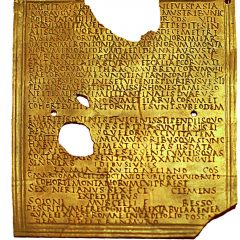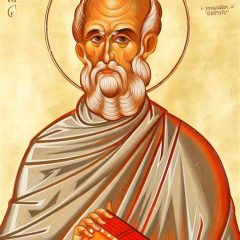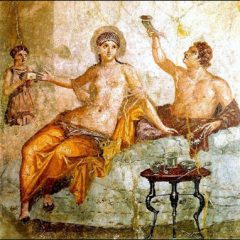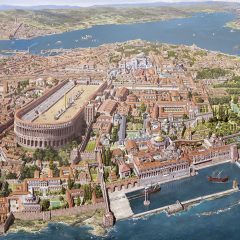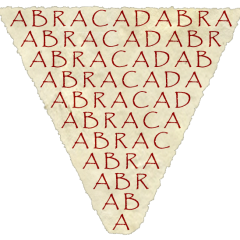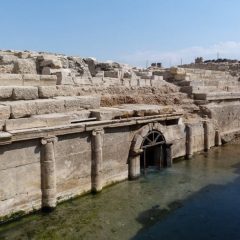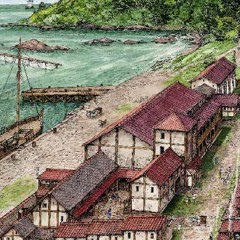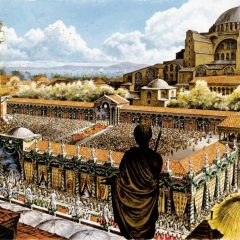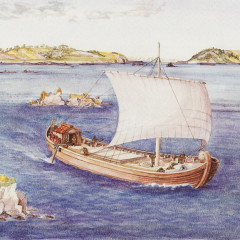Columbanus – The Monk Who Saved Europe
You may never have heard of Columbanus, but this radical-thinking monk can be credited with helping to save Europe in crisis after the fall of the Roman Empire.
Basiel Sarniensis – The First Channel Islander Recorded in History?
Baslel Turbeli filius Gallinaria, Sarniensis – a name that emerged from the ground in the town of Algaiola in northern Corsica one day in 1916. A long dead name that had not seen the light of day for over 1000 years. The name of a Roman Marine or sailor serving in the fleet of Miseniense and quite possibly the first Channel Islander’s name ever recorded in History.
Why is Christmas the most Important Christian Holiday?
To anyone looking from the outside, Christmas would seem to be the biggest festival of the Christian year. It has the 4 week build-up with Advent, there are more carol services than you can shake a yule-log at, and the churches are packed with people who may not have even stepped inside a church since last Christmas! So is it really Christianity’s most important festival ?
Saint Sampson – A Superstar of his Time
It is St Sampson who is credited with bringing the Christian Gospel, to not only Guernsey, but the whole of the Channel Islands. He wasn’t just a local phenomenon but would have been regarded as something of a celebrity, a “rock star of his time”. We look at the the life and times of this remarkable man in this article.
Why Are There 5,280 feet in a mile?
There are 5,280 feet in a mile – a pretty ‘odd’ number – buy why ?
What Did the Ancient Romans Eat ?
What Did the Ancient Romans Eat ? – The short answer is … The Romans ate pretty much everything they could lay their hands on.
The Day the Gateway to the East was Renamed : When Constantinople became Istanbul
On the 28th March 1930 – after 1,599 years, 10 months and 17 days – Constantinople, named after the Roman Emperor Constantine, became Istanbul.
More than Just a Funny Word – The Meaning behind and Origin of Abracadabra
You might be tempted to think that the word ‘Abracadabra’, beloved of magicians and children’s party entertainers, is just a silly made up word – but you’d be wrong. It’s a very real and very ancient word with some sinister connotations.
An Ancient Mystery Solved … Hierapolis, “The Gates to Hell” & Instant Death
One of the world’s most chilling ruins is the Ploutonion at Hierapolis, “the Gates to Hell”. Here crowds watched priests lead animal sacrifices down into a cave, where they died mysteriously as if dragged down to the underworld. No one knew how they did it, that is, until very recently.
Guernsey Celts & Guernsey Romans – A Timeline
Since the 1980s there has been a veritable explosion of Archaeological evidence to suggest that Guernsey was very much a part of the Roman World. In this article we look at the interface between the Celtic Worlds and the Roman World in Guernsey and the channel Islands.
Did You Know … Between AD 208 and 211 the entire Roman Empire was governed from York
A Rare Known Factoid … “Between AD 208 and AD 211 the entire Roman Empire was governed from York.” Some Random Romano British Factoids For 3,000 years, chickens were farmed primarily for their eggs. Only when the Romans came to Britain did it dawn on them to eat the bird. Ruyton-XI-Towns, Shropshire, is the only place in Britain whose name contains Roman numerals. When the Romans first arrived in Britain, they...
Why Does a Thumbs-Up Gesture Mean “okay”?
Why does a thumbs-up gesture mean “okay”? : Any Roman gladiator movie worth its salt always includes the obligatory Colosseum combat scene where the fate of a beaten warrior is given by the thumbs-down signal – or the thumbs-up if he wants him to live. But is this really the origin of this signal ?
Constantinople – Where (Middle) East Meets West
On the 28 March 1930 after 1,599 years, ten months and seventeen days the great city of Constantinople officially became Istanbul. It was on this day that the Turkish Post Office formally changed the name by which it had been informally identified since some time in the 13th century. A Long History A Greek City There has been a town on the site of modern Istanbul since at least the 7th century BC, when it was settled by Greeks. They...
The Language of Caesar : Latin Phrases Everyone Should Know
A motley combination of Anglo-Saxon, Latin, and Germanic dialects, the English language (more or less as we know it) coalesced between the 9th and 13th centuries. Despite this we use a lot of Latin phrases to this day. In this article we look at some of the more common Latin phrases that we should all know.
Asterix – Guernsey’s Own Roman Wreck
On Christmas Day 1982 local Diver Richard Keen spotted the remains of a large wreck sticking out from the mud directly between the pierheads of St Peter Port harbour. It turned out to be the largest, most complete, seagoing Roman ship surviving outside the Mediterranean.


